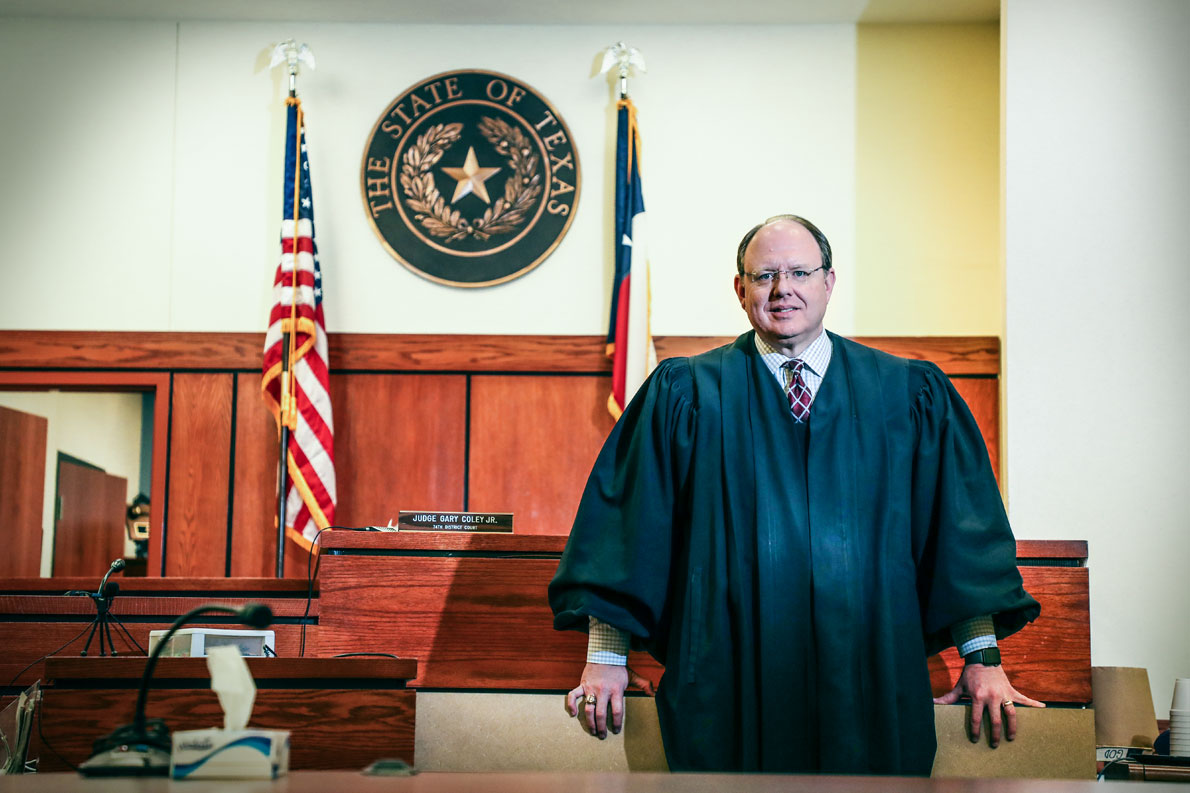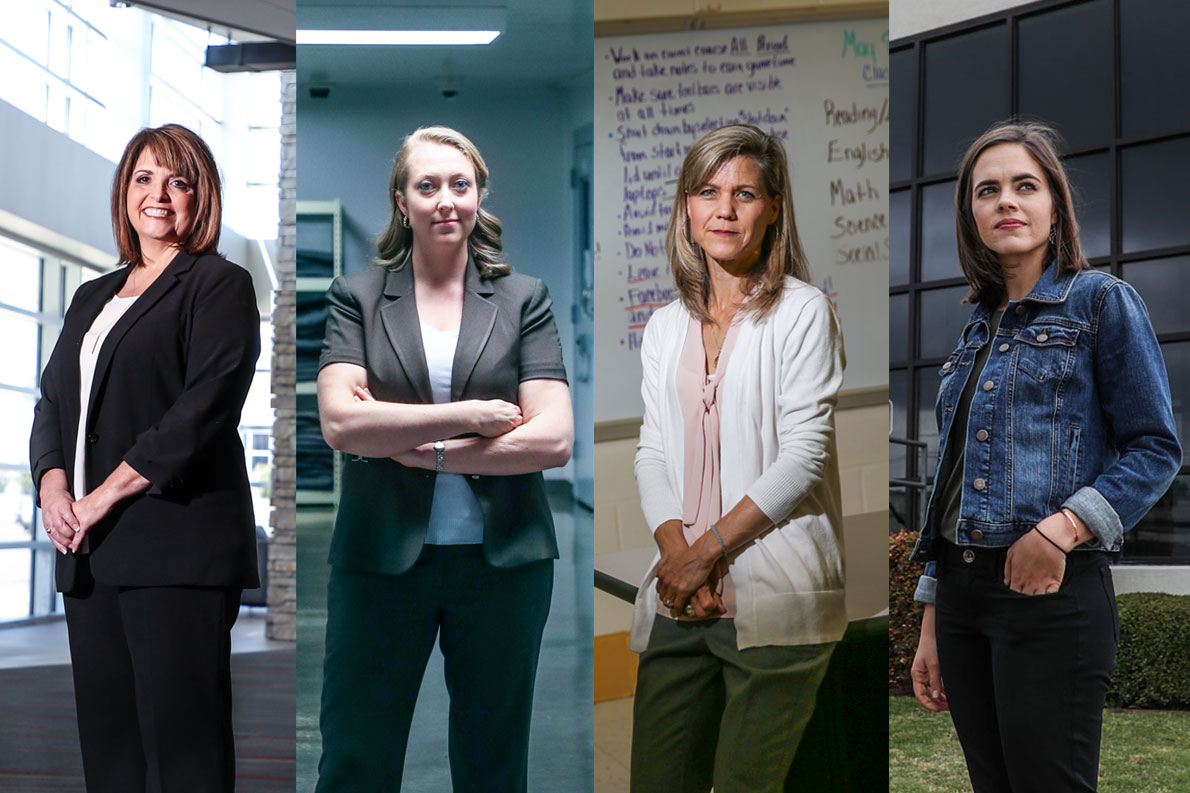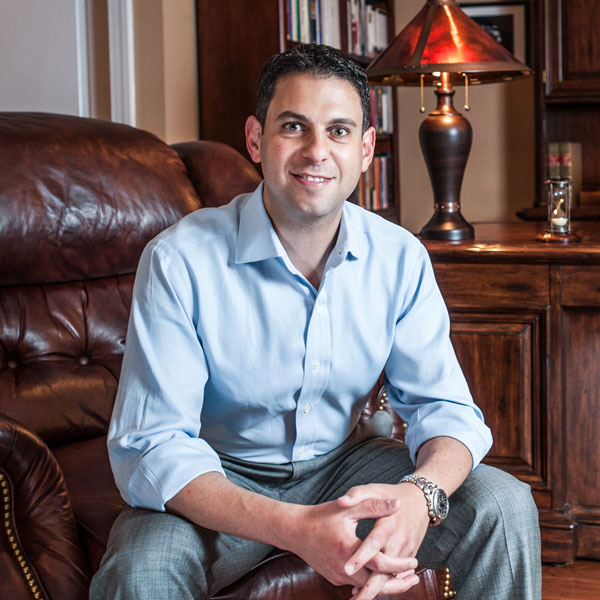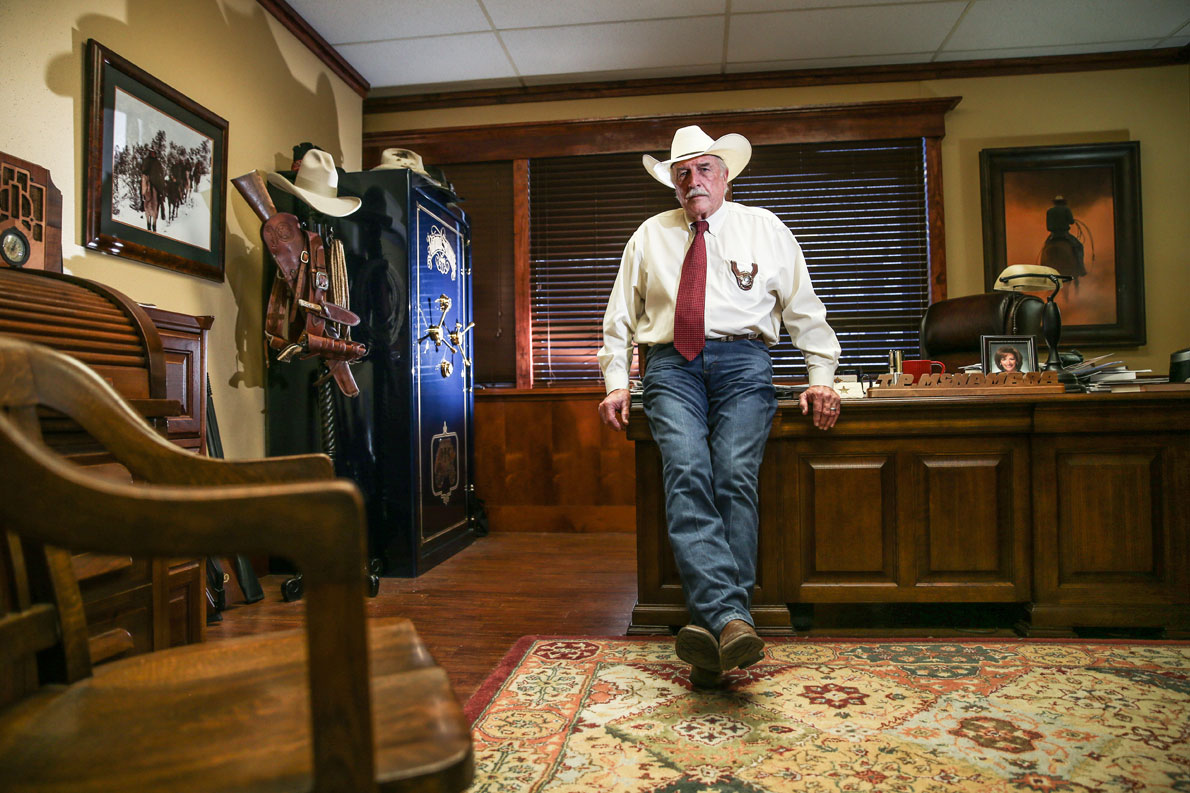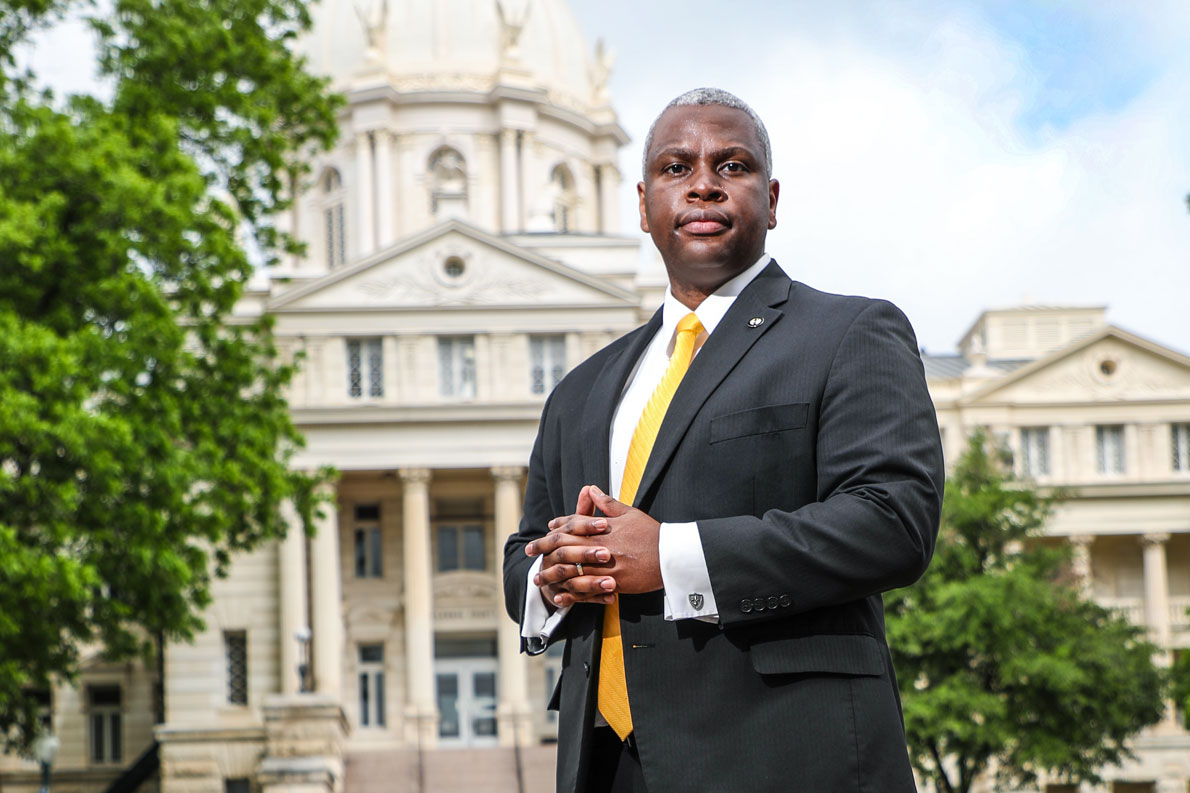Setting Captives Free
The Heart of Texas Human Trafficking Coalition unites 45 agencies and organizations for an unprecedented, effective collaboration to bring traffickers to justice and help survivors heal. Baylor alumni, faculty and staff fill vital roles in the coalition.
In March 2016, McLennan County prosecuted its first human trafficking case in Waco’s 19th State District Court. Already a five-time felon with 17 misdemeanors, Andre Evans, 51, was sentenced to 12 consecutive life sentences.
At a May 2016 Heart of Texas Human Trafficking Coalition meeting, one of three attorneys who prosecuted the case, Gabrielle Massey, BA ’01, shared the story of the survivor who had been trafficked all over Texas. At least 18 people face state or federal charges in this case.
Evans held a 15-year-old girl hostage for a month in his Waco home. He collected money from dozens of men who paid to have sex with the girl, who was kept in a drug-induced state, high on crack cocaine.
Without the collaboration of Coalition members, the McLennan County case never would have been tried.
Partnership:
Coalition develops unprecedented collaboration
Founded in 2015, the Heart of Texas Human Trafficking Coalition (hothtc.org) is recognized in Texas and nationally for its depth of collaboration, overall effectiveness and level of commitment by community leaders. In all, 45 agencies and organizations effectively work together on this single issue. Among them are the Waco Police Department’s Crimes Against Children Unit, the Advocacy Center for Crime Victims and Children, the McLennan County Sheriff’s Department, the U.S. Marshals and Jesus Said Love. At a recent Coalition roundtable, nearly half of the 84 participants were Baylor alumni or employees.
“The Heart of Texas Human Trafficking Coalition is one of the strongest anti-trafficking coalitions we work with in Texas,” Andrea Sparks, director of the Texas Governor’s Office Child Sex Trafficking Team, says. “The breadth of community participation from law enforcement to Communities in Schools to faith-based advocacy organizations like UnBound is not only impressive—it empowers the Coalition to shine a light on the dark reality of human trafficking in all reaches of the community. The diversity of membership organizations in the Coalition fosters wide public support for law enforcement efforts to bring traffickers, buyers and facilitators of sex trafficking to justice and enhances victim services organizations efforts to help survivors heal and thrive.”
The Texas Governor’s Office sends representatives to Coalition meetings, and other cities are reaching out to find out how Waco has rallied around anti-trafficking.
“We have people calling from other coalitions, and we’re going to cities like Galveston and Denton to help talk about what we’re doing because it is working,” Coalition co-founder and Baylor adjunct professor Susan Peters, BA ’86, says. “There’s so much unprecedented collaboration, and [our community agencies] are reaching real victims and getting them help.”
A key development for local anti-trafficking efforts came in 2016 in the form of a $1.5 million grant from the U.S. Department of Justice, one of only 11 of its kind given nationwide. The funding increases the collaborative anti-trafficking efforts to make the Heart of Texas a safer place for children and a more hostile area for traffickers.
“Our community leaders in the Coalition have been coming for more than two years, saying that this is an important issue and we won’t have it here. Let’s figure out what we can do collectively to stop it. I think it is quite impressive,” Peters says. “Waco doesn’t have more traffickers than other communities; we’re just becoming better at finding them.”
"The Heart of Texas Human Trafficking Coalition is one of the strongest anti-trafficking coalitions we work with in Texas."Andrea Sparks
Natalie Garnett, BA ’12, is Coalition coordinator and assistant national director for UnBound. She believes the Coalition is an unprecedented collaboration.
“Our focus at UnBound is on activating the local community to fight human trafficking,” Garnett says. “Whenever we see more people—whether it’s an agency or an individual teacher or an ER nurse—working to fight human trafficking, that’s another sector of our community that is activated. We see that through the Coalition and through the trainings that we do through UnBound. Everyone getting on board is exciting, because ultimately, this is about what our community accomplishes together.”
UnBound:
Anti-trafficking-focused NGO builds consensus in community
UnBound (unboundnow.org), which spearheaded the creation of the Coalition in 2015, was founded in 2012 by Peters, a pastor, and Laura Seibert, BBA ’86, through Waco’s Antioch Community Church.
“We saw all these siloed areas where people were working to fight trafficking directly or indirectly, but we wanted to see more collaboration happen,” Garnett says.
They sought people who understood the issue and who were already working in the community such as 74th District Judge Gary Coley, JD ’93, the Advocacy Center and various Baylor professors. Planning meetings began as the group tried to gauge the task ahead.
“I look back at historic periods like the Holocaust and the trans-Atlantic slave trade, and I think: Where was the church?” Peters says. “In the future, I don’t want people to look back and say that during this moment of our time, the church was again silent. Our churches are full of highly skilled, brilliant people with incredible resources. In creating UnBound, we wanted to do whatever we could to mobilize the church.”
Law enforcement agencies were skeptical that a church organization could help much or whether they should be involved in what can be dangerous work. UnBound explained in their first meeting with the FBI and others that they wanted to focus on prevention, training and aftercare of survivors.
A big factor in building UnBound’s credibility was the consistency and effectiveness of the team led by Seibert, which has visited youth at the Bill Logue Juvenile Justice Center group homes for more than five years. Presenting anti-trafficking lessons and creating relationships with the youth there helps to identify victims who need services.
“Law enforcement groups quickly saw that we were a legitimate partner when we began referring real cases to them,” Peters says. “Now we have a system in place where we can quickly provide them with information. We have great communication and don’t try to do each other’s jobs. Law enforcement does their investigations, and we come in where we can with resources and relationship to support their efforts and serve the victims.”
One of the biggest events for UnBound occurred in February 2016 when U.S. Sen. John Cornyn addressed the community at “Not in My City Night,” a human trafficking awareness night that drew more than 500 people. Cornyn authored the Justice for Victims of Trafficking Act, which was signed into law in 2015. The event’s featured speaker was the mother of a domestic minor sex trafficking survivor. Local KXXV-TV news anchor Ann Harder, BA ’75, moderated a panel with Coley, Peters, McLennan County Sheriff Parnell McNamara, BBA ’69, and Sheriff’s Office Detective Joseph Scaramucci.
Learn More about how Victor Boutros, BA '98 is stopping human traffickers in developing countries, where approximately 94 percent of slavery occurs.
Read More
In community and professional trainings across the region, UnBound focuses on helping people understand the scope of human trafficking, how it happens in our communities and what people can do about it. One element many people have a hard time understanding is the difficulties facing victims trying to leave.
Peters says victims face a nearly unfathomable list of challenges. She says recovery is “hellacious” with numerous complexities, both physical and psychological. Additionally, many victims aren’t able to initially self-identify as such, survivors often experience trauma bonding with their captors and, in many cases, there are a lack of resources available to help.
Still, it is rewarding when there is progress. These times include when NGOs and law enforcement work together to convict a criminal, when a survivor graduates from a recovery program or when victims overcome shame and heartache to share their stories.
A portion of the Coalition’s DOJ grant allowed UnBound to hire Jessica Foran, BA ’03, JD ’06, as director of survivor advocacy. Foran spent the last seven years in Alabama and Washington, D.C., as an FBI special agent. She also is the case director for the Coalition, providing intake and eligibility assessments, tracking cases to make sure everyone is served and referring clients to services.
“We wanted to make sure every victim that’s identified in our region has access to all the resources they are eligible for,” Garnett says. “The problem we were seeing before was, many times agencies identified victims, but they didn’t have the information or resources within their agencies to give them trafficking-
specific care and to know who to reach out to. We need to be able to resource each other.
"Law enforcement groups quickly saw that we were a legitimate PARTNER when we began referring real cases to them."Susan Peters
“A big part of that is educating community agencies about those resources, but also having a designated person who they can call and say, hey we’re helping this victim, what’s available for his or her specific needs? Jessica’s job within the Coalition is to help track and streamline that.”
Foran estimates that about one-third of trafficking victims in the area are identified through stings, one-third through other service providers, and one-third through hotline calls from parents of victims, hospitals and the community.
“I firmly believe that we can stop human trafficking in our communities,” Foran says. “If everyone does their part, if we understand the signs to look for and the tactics of traffickers, I believe we can stop it not only in our community but other people can do it, too.”
Sting operations net dozens of arrests
In 2015, the McLennan County Sheriff’s Office began online sting operations posing as underage girls to gauge the level of demand in Central Texas. What they found was shocking.
“Within the first 12 hours of putting a post online, we had almost 100 people who wanted to be connected with underage girls for sex,” McNamara told the audience at an UnBound event in March. “We were absolutely appalled. So, we started luring them in and arresting them. Detective Joe Scaramucci has led this effort, and we team up with the Waco Police Department Crimes Against Children Unit and other agencies to fight trafficking.”
McNamara says the first sting netted 20 people over a three-week period. Two months later, another sting resulted in 29 arrests. The numbers grew from there.
“We want to have a sting where nobody shows up,” McNamara says. “Then we know that we have really done some good. But they keep coming out of the woodwork.”
At McNamara’s invitation, UnBound’s Peters joined five stings in places like hotel rooms, parking lots and massage parlors. McNamara says he is proud to team with UnBound.
“Susan Peters, Natalie Garnett, their team and the other agencies are incredible,” he says. “Their work is unbelievable. During the stings, when we’re trying to pose as buyers of sex and people are coming into the hotel rooms to meet whoever’s in there, Susan and UnBound is in the room with us.
“Our job is to arrest them and put them in jail, but at the end of the day, if we can save lives, if we can get young people out of that business and turn their lives around, that’s really our main goal,” McNamara explained. “We can’t do that without the help of UnBound. This is a dead-end road with a lot of drugs. The life expectancy of victims is around seven years after first being trafficked.”
In those situations, Peters does everything she can to aid victims. She rides in the back of prisoner vans to law enforcement facilities and sits with victims as they write out their statements against traffickers. She shares with them aftercare options and arranges transportation to safe houses in other cities through organizations like Jesus Said Love, which is led by fellow Coalition members Brett, BA ’98, and Emily Mills, BA ’99. JSL offers Stop Demand School, a program designed to end demand for commercial sex exploitation by educating those charged with solicitation of sex through an intervention course.
“UnBound plays a more intentionally compassionate support role, which law enforcement can’t do because they don’t usually have resources for the victims,” Peters says.
McNamara says his stings will continue.
“We’re not going to let up on these traffickers and johns,” he says. “We’re going to keep the heat turned up from here on out, and we’re going to work with Coalition members every single way that we can. Hopefully, we’ll make a difference, and one day we will have a sting where nobody shows up.”
Prevention and aftercare are crucial components
A key component of the Coalition’s work is prevention. By actively deterring traffickers from the area and reducing demand through education, along with providing aftercare and rehabilitation services for survivors, the Coalition is addressing every aspect of the issue.
“There is a tremendous effort here by Coalition agencies, but the bigger our team, the better our effort,” McNamara says. “It is so important for the community to be the eyes and ears of law enforcement. If you see something that you think is wrong, don’t hesitate to report it. We’ll check into it. Young girls and boys are saved by doing that.”
"It is so important for the community to be the eyes and ears of law enforcement."Sherriff Parnell McNamara
McNamara and Coley have been two of the Coalition’s biggest advocates. They emphasize that human trafficking spans across all demographics when it comes to sex buyers and victims, who could be anyone from foster children and runaways to college students and children of CEOs.
At the March UnBound event, Coley told the participants, “At the time we were forming the Coalition, I presided over all of the (Child Protective Services) and juvenile cases in McLennan County. I was one of the people who came into contact with a lot of the girls who had been trafficked through CPS care or were brought into detention for running away from home. Unfortunately, at that time, I was one of the first people to see those kids. As a result of the Coalition and UnBound, I believe many of the victims are getting help before I see them in the courtroom.”
Coley says early detection and identifying signs by community members is crucial to keep kids from slipping through the cracks. He says it is important to not expect “the system” to take care of the problem.
“The solution lies in our community, and digging in and making a difference in these kids’ lives,” Coley says. “Look for those kids. Understand those signs of vulnerability. If you’re a teacher or counselor, a neighbor, friend at church—whatever your role is—really look for those things and speak into those kids’ lives. Identifying those kids early is what gives them the opportunity to avoid going down a path that’s really, really unspeakable.”
Attorney and advocate Robert Callahan, JD ’06, says everyone has a role in assisting victims who rarely fully understand their captivity. As a former prosecutor at the district attorney’s office, Callahan handled crimes involving women and children. He says victims talk about not being able to get out of the situation, often showing signs of Stockholm syndrome and trauma bonding.
“These women in these relationships, they don’t see themselves as victims,” Callahan says. “I have yet to find a survivor that says, ‘I am a human trafficking victim.’ They don’t self-identify. They don’t understand that they are being exploited, manipulated or abused.”
Callahan says there are many aspects of aftercare, including medical attention, psychological attention and legal help.
“At the Coalition, we collaborate with each other, asking who we know in healthcare, in psychology, in housing, in business,” he says. “Whatever your discipline, there is a way that you can be involved in some part of this fight. There is something that everyone could do.”
Garnett says that the Waco area’s size, number of social services agencies, higher education resources and central location along the interstate has created an ideal scenario to come up with a great anti-trafficking model.
“We’ve seen that in UnBound because we’re multiplying our chapters across the country and across the world,” Garnett says. “We also see that with the Heart of Texas Human Trafficking Coalition. We’re a unique community and we have a lot to learn from what other communities are doing, but it’s a great place to start developing those models for collaboration that other people can emulate or learn from in some way.”
Peters says leadership is what makes it work.
“The steering committee consists of leaders in law enforcement, the district attorney’s office, Waco ISD, Baylor professors, the City Council, other NGOs,” Peters says. “Area leaders are shaping what the community is doing, so that’s set the pace for other agencies to be involved. That’s what other cities need; they need their leaders saying ‘We’re in.’”
